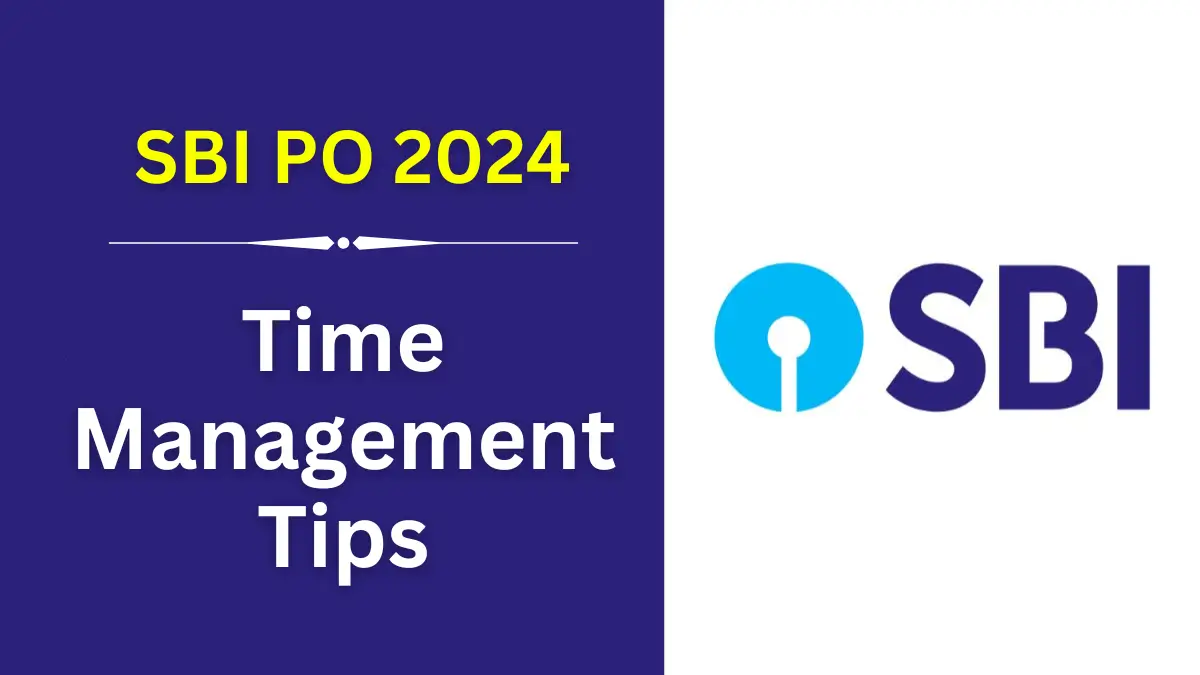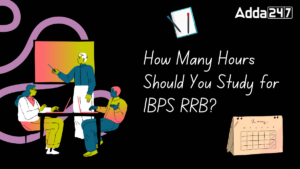Table of Contents
The SBI PO (State Bank of India Probationary Officer) exam is highly competitive and a popular choice for those looking to pursue a career in banking. The official notification for SBI PO 2024 will be released soon on the official website. In the meantime, it’s crucial to start preparing ahead of time. This article is especially valuable for candidates committed to their preparation, as it focuses on Time Management Tips for SBI PO Exam.
Time Management Tips for SBI PO Exam
The SBI PO 2024 exam consists of three stages: the Preliminary exam, the Mains exam, and the Interview. Managing your time well is key to performing your best in each stage. With proper time management, you can stay focused, reduce stress, and increase your chances of success. Here’s a simple guide to help you manage your time effectively both during your preparation and on the exam day.
Understanding the Exam Structure of SBI PO
Before getting into time management strategies, it is important to familiarise yourself with the exam pattern and structure if you are a new student. The SBI PO exam is divided into three stages: Preliminary Exam, Main Exam and Interview. Here are the details of each stage:
Prelims Exam
The Preliminary Exam consists of three sections: English Language, Quantitative Aptitude, and Reasoning Ability. It has a total duration of 1 hour, with 20 minutes allocated to each section. The exam contains 100 questions in total, with 35 questions in Quantitative Aptitude, 35 in Reasoning, and 30 in English.
- Sections: English Language (30 Questions), Quantitative Aptitude (35 Questions), and Reasoning Ability (35 Questions).
- Duration: 1 hour, with 20 minutes per section.
- Number of Questions: 100 questions in total.
Mains Exam
The main exam is more comprehensive and consists of five sections: Reasoning and Computer Aptitude, English Language, General/Economy/Banking Awareness, Data Analysis and Interpretation and a descriptive test (essay and letter writing). The total duration for the objective test is 3 hours, followed by an additional 30 minutes for the descriptive test. There are a total of 155 questions, which include a mix of multiple choice and descriptive questions.
- Sections: Reasoning & Computer Aptitude, Data Analysis & Interpretation, General/Economy/Banking Awareness, English Language, and Descriptive Test (Essay and Letter writing).
- Duration: 3 hours for Objective Test + 30 minutes for Descriptive Test.
- Number of Questions: 155 questions in total (with a mix of multiple-choice and descriptive questions).
Interview
Finally, the interview stage assesses the candidate’s personality, communication skills and ability to handle pressure. It evaluates the overall suitability of the candidates for the role of a Probationary Officer.
Divide Full Day Time Slots
Here’s a perfect full-day preparation schedule for the SBI PO exam, divided into well-structured time slots to ensure balanced preparation across all subjects and consistency in your routine. This plan ensures you cover all areas while also leaving time for breaks and revision.
Morning Session (6:00 AM – 9:00 AM):
Objective: Build foundational knowledge in general awareness and banking/computer awareness while staying updated with current events.
6:00 AM – 7:00 AM: Current Affairs: Read newspapers or use apps like The Hindu or Economic Times to cover national and international events.
Focus on financial updates, important government schemes, and SBI-specific news.
7:00 AM – 8:00 AM: Banking & Computer Awareness: Review banking terminologies, financial terms, and key banking regulations. Revise computer basics such as hardware, software, operating systems, and basic internet concepts.
8:00 AM – 9:00 AM: General Awareness: Cover static GK topics such as history, geography, science, and current developments. Revise key facts, figures, and events from the previous day’s current affairs.
Late Morning Session (9:30 AM – 12:00 PM)
Objective: Focus on English language skills to improve vocabulary, grammar, and reading comprehension.
9:30 AM – 10:30 AM: English Vocabulary: Learn new words and their meanings. Practice synonyms, antonyms, and contextual usage of the words.
10:30 AM – 11:00 AM: Editorial Reading: Read editorials from reputed newspapers like The Hindu or Times of India. Focus on improving reading comprehension and vocabulary while understanding different writing styles.
11:00 AM – 12:00 PM: Grammar Exercises: Work on grammar topics like tenses, articles, conjunctions, prepositions, and sentence correction. Practice through worksheets or online quizzes.
Daily Revision (During Breaks): Revise the vocabulary learned the previous day and strengthen memory recall.
Afternoon Session (1:00 PM – 3:00 PM)
Objective: Strengthen logical reasoning and speed in mathematical concepts.
1:00 PM – 2:00 PM: Speed Maths: Practice simplification, quadratic equations, approximation, number series and mental maths to improve calculation speed. Focus on shortcuts and techniques to solve problems quickly (e.g., fractions, averages, percentages).
2:00 PM – 3:00 PM: Puzzle Solving: Work on different types of puzzles: number series, seating arrangements, blood relations, and direction sense.
Challenge yourself with a time limit to boost speed.
Evening Session (4:00 PM – 7:00 PM)
Objective: Work on Data Interpretation (DI) and Arithmetic skills to enhance problem-solving efficiency.
4:00 PM – 5:00 PM: Data Interpretation (DI): Practice problems based on bar graphs, pie charts, tables, and line graphs. Focus on solving DI problems under time pressure to improve speed and accuracy.
5:00 PM – 6:00 PM: Arithmetic: Focus on key arithmetic topics like profit and loss, time and work, speed and distance, and ratio and proportion.
Solve problems using a variety of methods to improve conceptual clarity.
6:00 PM – 7:00 PM: Reasoning Topics (Except Puzzles): In this time you practice reasoning topic like Syllogism, Blood Relation, Inequality, Direction and distance, Pair Formation, input output etc. Dedicate this time to any topics that need extra attention.
Additional Tips for Effectiveness
Weekly Mock Tests: Dedicate 1-2 hours every weekend to take a full-length mock test and review your performance.
Mock Test Frequency: Add mock test time 2 to 3 times a week before 2 months of the exam, and when the exam is near, take mock tests 4 to 5 times a week.
Time Management
Time management is an essential skill when preparing for bank exams, as it plays a significant role in determining your success in both the prelims and mains. To improve this skill, incorporate time-bound mock tests into your study routine. This will help you develop a sense of speed and accuracy under pressure. During your mock tests and practice sessions, prioritize easy and familiar questions first, ensuring that you quickly accumulate marks. For more difficult questions, allocate extra time and tackle them with a strategic approach. Developing this balance between speed and precision will significantly boost your exam performance.




 Is IBPS RRB Difficult To Crack?
Is IBPS RRB Difficult To Crack?
 How Many Hours Should You Study for IBPS...
How Many Hours Should You Study for IBPS...
 How to Score 18+ Marks in the English La...
How to Score 18+ Marks in the English La...





